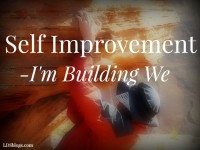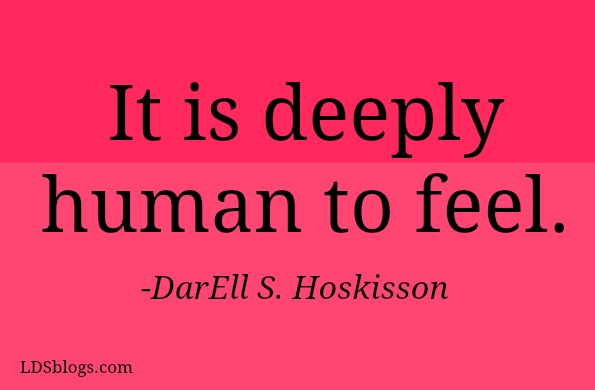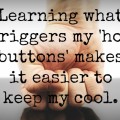When do feelings matter?
Benjamin Franklin said, “If you are mad, count to 10. If you are really mad, count to 100.” Taking action, reacting in any way, even speaking during an overwhelming feeling almost always leads to problems. If all feelings do is delay or distract, maybe they are irrelevant.
In an employee training called “Listen First” at the YMCA, I noticed something. Many of us intuitively picked up on the “feeling messages” of the speaker while many others did not hear them at all or viewed the feelings as totally irrelevant. Does the emotion, tone of voice, and body language of others carry the primary message, or is it hindered by it? When, if ever, do feelings matter?
What is a feeling?
I’m going to define feelings in three ways:
- A purely physical and/or chemical state that feels positive or negative.
- A preference as in like or dislike; enjoy or fear. A want, need, desire or wish to avoid.
- A state of being that is a reflective reaction to or description of your own thoughts or experience. It is how you are. This is very personal, very specific and can be termed in a hundred different describing words.
Feelings always matter:
My daughter said, “Feelings always matter because people always matter. If you don’t care about their feelings, you don’t really care about them.” I agree that in relationships, this is exactly how it feels. It feels true. Using definition number three, I feel loved or cared about when people care about my feelings in all three definitions–my physical state, my preferences, and my description of what it is like to experience my life.
 When someone does not care about my feelings, it can feel as if I don’t matter to them at all. Responding as if my feelings are irrelevant can feel very personally dismissive, as if I don’t matter to you at all. Many, many people do not seem to understand how it feels.
When someone does not care about my feelings, it can feel as if I don’t matter to them at all. Responding as if my feelings are irrelevant can feel very personally dismissive, as if I don’t matter to you at all. Many, many people do not seem to understand how it feels.
When the primary message is a feeling message, it is really a question. It asks, “Do you care about me, still?”
It is a relationship message. If the listener mistakenly thinks the primary message is the topic, subject or irritant, they run the risk of unintentionally increasing the speaker’s fears and insecurities in that relationship. For example, in the movie, Princess Bride, Buttercup asks Farmboy for a pitcher. She doesn’t necessarily need the help or the pitcher. It is nothing about the pitcher. It is all about the relationship. Will he be there for her? His reaction lets her know that she can depend on him (as he proves throughout the rest of the movie–his dedication, loyalty, and love).
If Farmboy misread the message, he might have said, “That’s dumb, Buttercup. Get it yourself.”
He might be a caring, level-headed guy. But, he would have missed a grand opportunity to make an emotional connection. Understanding and responding to feelings builds relationships.
Feelings are Irrelevant
It does not matter one shred if you like changing poopy diapers if that is what your child needs. It does not matter if you like your work if you have to go. Many, many things just need to get done, and it might not be what anyone (at least anyone around) would love to do. In purely task-orientation (which many people tend to be), feelings are largely irrelevant.
 Highly charged emotions just stir everybody up and distract them from the task at hand. “Drama” is often what we call people’s feelings we don’t empathetically also feel. We don’t appreciate “drama” when we have a deadline to meet or a family picture to take. We just want you to be quiet and cooperate! Smile already. It doesn’t matter how you feel.
Highly charged emotions just stir everybody up and distract them from the task at hand. “Drama” is often what we call people’s feelings we don’t empathetically also feel. We don’t appreciate “drama” when we have a deadline to meet or a family picture to take. We just want you to be quiet and cooperate! Smile already. It doesn’t matter how you feel.
When a commitment or decision has been made, how fun it is no longer really matters. Like “the mail must go through. No matter if it rains or snows, the mail must go through,” we can’t just stop what we are doing every time we have a feeling. For example, my daughter, who is in law school, felt horribly sick before her first set of tests. This is totally reasonable to expect. It is totally normal. And, it is totally irrelevant. There is too much invested to just change your mind now because it doesn’t feel good, right or even healthy. The decision is made. We have to keep moving forward. (Not surprisingly, she survived! even though it felt like death’s door!)
Trump
Some feelings are so urgent or important that they trump (take precedence over) anything you were planning to do that day. For example, acute pain or illness is a health emergency. The intense need (or feeling) of a spouse or child that can not be met another way becomes a family emergency. If you are a faithful person that believes in inspiration, a sudden prompting could trump your plans and change your course. Urgent feelings often help us and those we love survive. We just have to be careful that we aren’t so anxious that everything feels like a life or death emergency when most of the time, it really isn’t.
To Care or Not to Care…How should I feel about feelings?
Confused about how to correctly discern when and how to address feelings, I asked my father in law who has worked at a mental hospital for most of his career. He said, “Think about the logical outcomes and see if they are correct. Feelings often give messages that aren’t correct.”
This is my collection of what I know so far:
- Unless it is a true emergency, it never hurts to quickly validate someone’s feelings first. If I can’t do that, I can at least say that I love them and/or care before moving on.
- Some people do not use emotion/body language to share feelings. They use it to share urgency (how important it is to them). For these people the topic, subject or irritant is……shockingly the topic, subject or irritant. These task-oriented people want the task addressed. Getting it resolved feels loving to them.
- Everything is not a catastrophe. (Most things can wait an entire day or more to calm down and respond reasonably to).
- Some things are a real threat. If the catastrophe is a real possibility such as a hurricane or a death of a loved one, it doesn’t hurt to take action to mitigate loss. I can buy insurance or make a 72 hr kit. It won’t prevent the true tragedies of life, but it will help me survive them.
- Feelings are information. It helps to know them before making decisions. Midway through a commitment it is helpful to note for next time, but not necessarily helpful to dwell on the negative aspects. I need to remember my purpose–why I am doing what I’m doing and make the best of it. There is “opposition in all things” so I can’t expect it to be easy or fun all the time no matter what I’m doing.
- Deeply Consider: Is there anything I can do about it? (the cause of emotional pain)(if so, fix it. If not, allow grief) Is it contrary to my deepest personal values? (if so, how can I get more congruent with myself?) Is it wanting something different than reality? (if so, accept “no” for now. Move on.) What are the needs and desires of my family (especially spouse’s)
- Is it logical? Feelings are just that, feelings. They are not necessarily the truth. They change like the weather. So, does what I believe about this feeling match up with reality? Is it logical? What are the logical outcomes?
“Just keep telling yourself what is logical….until you believe it” –David A. Hoskisson
For example, I’ve noticed that love does not necessarily feel loving all the time. To expect others who love me to make me always feel loved is not logical. I must believe (or trust) that I am loved by those who love me in real, imperfect, human ways.
Feelings are human

Self Improvement- To read more of DarEll’s articles, click here.
It is deeply human to feel.
To accurately understand and express our humanity is art.
Namaste,
DarEll S. Hoskisson
DarEll S. Hoskisson loves to do hard things, but not too hard. She shares her own challenges, goals and experiences as she guides you into a realistic path of self-reflection and self-improvement. She shares tips on how to find, know and trust yourself so you can decide if other’s suggestions are right for you.
DarEll has the world a little upside down—where work is play and play is work. She actually thinks other people’s problems are fun to try to solve and lights up with a personal challenge. She loves people, harmony, and excellence. She also loves useful things like tools and ideas that make work faster, easier and more fun.
DarEll married in 1993 and graduated from BYU (1995) with a bachelor’s degree in English and Secondary Education. Since then she was adopted by 5 children and has worked with many non-profits. She is currently a certified personal trainer and group fitness instructor—leading pilates and yoga at her local YMCA.
DarEll lives in Florida where she enjoys her family, nature, her work, and encouraging people to live well.
She periodically posts her poems, what she is learning, and service opportunities on her personal blogs:
https://personalabridgements.wordpress.com and https://darellhoskisson.wordpress.com







My gosh this is timely for us right now!!!!
I am full of feelings – a lot of us are as we try to decide what is best to do for the future of our three families.
I will be using your ideas to help us.
I have read and reread this fantastic article. Did not realize how much I missed you until just now. Your insight into life is remarkable. You conveyed what is often in my mind but have not been able to say out loud. Thank you my dear, sweet friend. Anne campbell